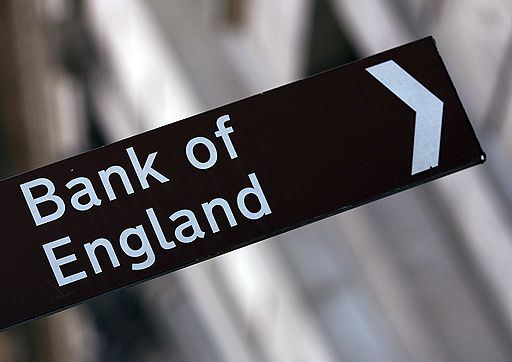Bank of England holds interest rates

The Bank of England (BOE) held interest rates steady on Thursday, with the U.K.’s economic outlook highly uncertain less than 100 days before the country leaves the European Union.
As widely expected the BOE’s nine-member Monetary Policy Committee (MPC), led by Mark Carney, unanimously voted to leave interest rates unchanged at 0.75 percent.
The central bank warned that Brexit uncertainty had “intensified considerably” over the last month, adding falling oil prices were likely to drag inflation below its 2 percent target soon.
BoE officials trimmed their forecast for British quarterly economic growth in the last three months of 2018 to 0.2 percent from 0.3 percent and said the picture in early 2019 was likely to be similar.
The BOE also repeated its view that benchmark rates could move in either direction post-Brexit, depending on how it unfolds.
With less than 100 days to go, Prime Minister Theresa May has yet to win the support of a large section of her Conservative Party for the deal she struck last month with Brussels.
James Smith, an economist with ING bank, said the BoE’s tone had turned more cautious even as it stuck to its position that it expected to resume raising interest rates if Britain could avoid a damaging no-deal Brexit.
“The general message remains largely the same: they would prefer to be tightening sooner rather than later, but Brexit is going to stop them doing that for quite some time,” he said.
The heightened risk of a disorderly Brexit has also increased calls for a second referendum to break the deadlock.
Earlier this month, embattled Prime Minister Theresa May pulled a vote on her Brexit deal after admitting lawmakers would most likely vote against it.
May is now seeking “assurances” from EU leaders over the nature of the so-called Irish backstop post-Brexit.
The backstop plan is essentially a legally-binding insurance policy to ensure there is no hard border between Northern Ireland and the Republic of Ireland whatever the outcome of future trade talks between the U.K. and the EU.
Critics of the current deal say Britain could end up being trapping the country in a customs union with the EU indefinitely.
However, May has repeatedly insisted if her deal is rejected then the U.K. could be forced to leave with no-deal — an option big business leaders dread — or the whole Brexit process could be reversed altogether.
The prime minister has rescheduled a vote on her Brexit deal for the third week of January.

